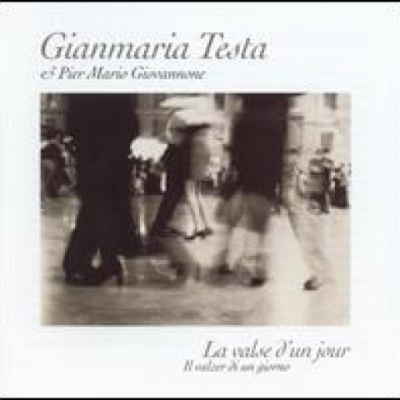
La Valse d'Un Jour
by Marisa BrownItalian chanteur Gianmaria Testa, if that's what he can be called, has accomplished in La Valse d'Un Jour what many less talented singer/songwriters spend their whole careers trying to do: create an album with the intimacy of a living room session, the spontaneity of a live show, and the professionalism that comes in a studio (perhaps for those reasons was the album re-issued worldwide after the success of its first edition, Il Valzer di un Giorno). Many of the songs on La Valse d'Un Jour come from Testa's previous recordings, specifically Montgolfiéres -- though "Il Viaggio" is from Extra-Muros -- but they're gentler, played on only two guitars, his and that of Pier Mario Giovannone (who also composed four of the five poems on the album; the fifth, "Plage du Prophéte," is by French writer Jean Claude Izzo). The simplicity of everything allows listeners to truly focus on the subtle power of Testa's singing, which moves around in various states of gruffness without ever being harsh. The gentle "Piccoli Fiumi" is quiet yet lush, reflecting the both the Italian landscape and the sincerity of his love, and the longing in the Sting-like "La Traiettorie Delle Mongolfiere" is apparent not only when he says "anche noi, anche noi/abbiamo cercato e perso le tracce del loro volo" ("we too, we too/searched for and lost the traces of their flight"), but also in the timbre of his voice itself. It's honest and passionate, which gives Testa a credibility that sometimes can be hard to find in other artists' work, and certainly impossible to fake. And the poetry in La Valse d'Un Jour, which is recited over either a softly picked and melodic acoustic guitar or a melodica, flows nicely and compatibly with the songs, creating an album that is not only cohesive in its presentation, but also provides a well-rounded and impressive picture of all that Testa can do.
